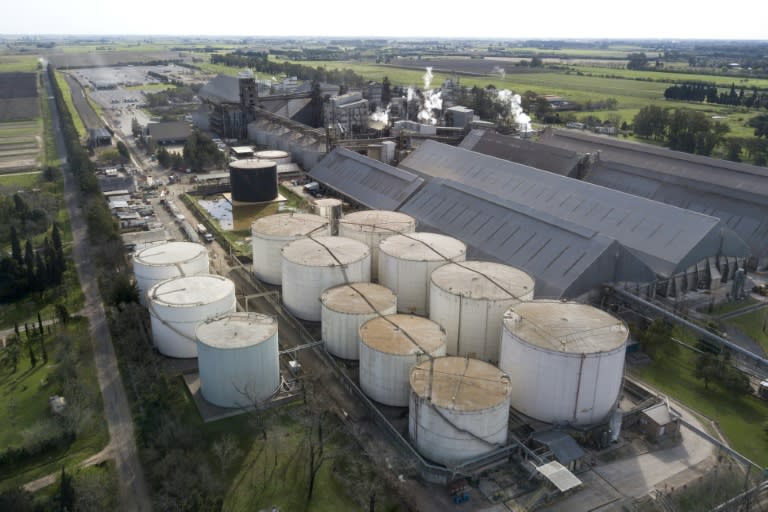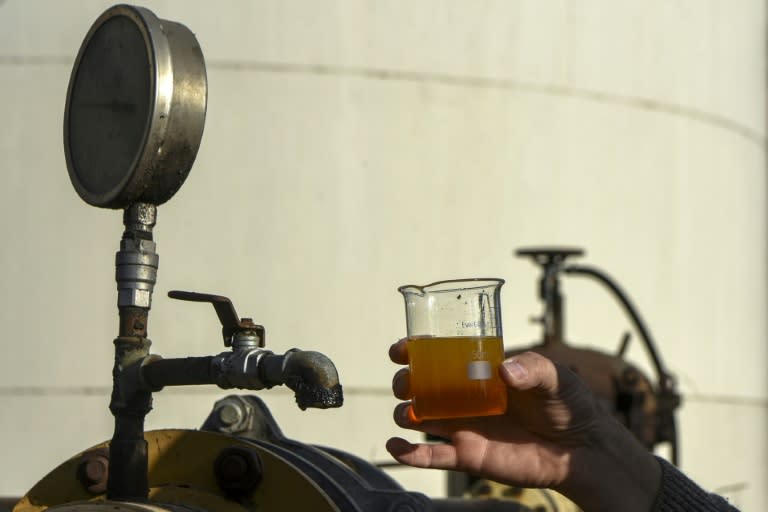Argentina eager to meet EU biodiesel demand after WTO ruling
Production is back at full capacity in Argentina's brimming biodiesel plants, producers say, after the WTO upheld Buenos Aires' complaints against European Union anti-dumping duties following a four-year battle. The first tanker loaded with biodiesel is on its way to Europe and others are due to set sail shortly from the 10 specialized terminals along the Parana River near the agro-industrial hub of Rosario. Luis Zubizarreta, head of Argentina's biodiesel association, Carbio, described the lowering of tariffs and the re-opening of the European market as "excellent news". Access to Europe for the first time since tariffs were imposed in 2013 comes in the nick of time for the giant producer, after the United States effectively slammed the door to Argentine imports just last month. The EU imposed prohibitive duties on Argentine biodiesel after European producers accused it of dumping. "We had to look for new alternatives," said Zubizarreta. "We gradually entered the US market, and then a few weeks ago we had bad news, they put up provisional tariffs that closed the market again." The United States, the recipient of almost all Argentina's biodiesel exports last year, leveled a punitive 60 percent duty on Argentine production in August. Argentina regained access to the European market after successfully challenging the anti-dumping duties at the World Trade Organization. With Rosario's giant producers now back in full swing, the Carbio chief said it was welcome news. But he said the standoff had cost his members dearly. "We have suffered protectionist policies. These problems have caused damage to the industry and the soybean chain," Zubizarreta said. "Undoubtedly, Argentina was deprived for four years of exporting almost 2 billion US dollars' worth per year." - Low cost of production - "Argentina has become a huge producer of biodiesel because it produces a lot of soybean oil, a by-product of the production of soy protein flour in great demand," said Zubizarreta. Lower production and logistics costs than the US or Europe provides a strong platform for exports, said Cristian Ciribe, an executive with Argentina's largest biodiesel producer, the French-owned Louis Dreyfus Company (LDC). LDC's two sites in the city of General Lagos, 20 kilometers south of Rosario, give it a production capacity of 600,000 tonnes a year. Ciribe says Argentina's greatest asset in the industry is to have some 20 high-tech plants around the Rosario soybean producing hub, able to take advantage of specialized port terminals nearby. "Here, we have the fields alongside, we process soy, flour, oil and biodiesel on the same site, and it goes to the ships," said Ciribe, pointing to a tanker being loaded on the river. "It's the largest soybean complex in the world," he said. "And the most profitable." The LDC site in the city of General Lagos receives 12,000 tonnes of soybeans a day. It takes around 100 tonnes of soybeans to produce about 70 tonnes of soybean meal --a feed supplement for livestock, pigs or fish farms -- and about 20 tonnes of soybean oil, which is then converted into biodiesel. - Market instability - Biodiesel is mainly used as an alternative fuel for cars. Spain was Argentina's biggest European customer for biodiesel before the spat with Brussels in 2013 effectively caused a four-year hiatus in exports Argentina has been focusing on biodiesel since 2007, seeking outlets for soybean oil produced in large quantities on its vast pampas, while world demand was falling. To obtain biodiesel, methanol must be added to soybean oil, so Louis Dreyfus, Bunge, Cargill and other multinationals invested in biodiesel plants. Argentina has an annual production capacity of 4.5 million tonnes but has produced only 2.5 million so far. One million tonnes of that goes to the domestic market, where service station retailers sell 10 percent of soybean diesel. Zubizarreta, the Carbio chief, is aware that the industry is volatile and prey to trade disputes, but convinced the future of the Argentine industry is bright. "We are going to end up showing that we are right, and that Argentina does not use unfair practices. Our industry wants to compete fairly in other markets; there are no subsidies or dumping."





